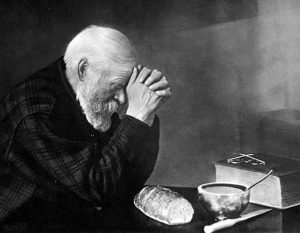HELP!
 Imagine standing on the deck of a cruise ship and hearing someone shout, “Man Overboard!” Imagine that as you circle the bow of the ship, hoping to get a glimpse of the action, you discover that you are the first, maybe the only one responding to the frantic call for help. You scan the waters,… there he is, bobbing among the waves. Immediately, you reach for the closest life preserver and run to the rail shouting, “Here, catch this!” Now imagine this; the soggy sailor shouts back, “No, not the life preserver, could you toss me that deck chair?”
Imagine standing on the deck of a cruise ship and hearing someone shout, “Man Overboard!” Imagine that as you circle the bow of the ship, hoping to get a glimpse of the action, you discover that you are the first, maybe the only one responding to the frantic call for help. You scan the waters,… there he is, bobbing among the waves. Immediately, you reach for the closest life preserver and run to the rail shouting, “Here, catch this!” Now imagine this; the soggy sailor shouts back, “No, not the life preserver, could you toss me that deck chair?”
All right stop imagining, and tell me the question that is flashing in your mind. You are probably thinking, “Why does this man, who is in such desperate need of rescue, ask for a deck chair?” Maybe he bumped his head falling off the ship; maybe his brain is a bit waterlogged. Whatever the reason, it’s obvious that his perceived need is not what he really needs.
We live in a day in which needs abound. There are victims of every sort with both real and perceived needs. Offering help these days requires discernment on the part of those of us who would participate in the rescue and relief effort. The man in the water might truly enjoy relaxing in a deck chair, but his most immediate need is to get his feet solidly on the deck.
Helping others is certainly honorable, and many in our day go above and beyond the call of duty to reach out to those who have both real and perceived needs. But I wonder; while we aid in the realms of the physical, should not we who are called “children of light” also introduce the needy to the only One who can sustain them physically, mentally, emotionally and spiritually for time and eternity?
Jesus Christ is “the Way, the Truth, the Life” (John 14:6), “in him we live, and move, and have our being” (Acts 17:28). The Bible tells us that “by Him all things consist.” (Col. 1:17) So, our greatest need is a relationship with Almighty God, the One who can meet the most grievous needs of man.

 Though what I am about to say will necessarily sound political, let me assure you that it is not my purpose to make a political statement. In a free country, multiple philosophical differences about the role of government will in time manifest themselves. There will always be individuals who are wealthy, independent, intellectual, and in their own estimation, destined to rule. This ruling class stands to gain if there are many dependent, poor and ignorant paupers for them to exercise authority over. These underlings are willfully dependent upon the proverbial “they” who are assumed, by some unwritten law, to be obligated to meet their every need.
Though what I am about to say will necessarily sound political, let me assure you that it is not my purpose to make a political statement. In a free country, multiple philosophical differences about the role of government will in time manifest themselves. There will always be individuals who are wealthy, independent, intellectual, and in their own estimation, destined to rule. This ruling class stands to gain if there are many dependent, poor and ignorant paupers for them to exercise authority over. These underlings are willfully dependent upon the proverbial “they” who are assumed, by some unwritten law, to be obligated to meet their every need.
 Today, it is quite common to read an article about Thanksgiving that makes no mention of God. Some promote the expression of gratitude one to another, while others ignore altogether the giving thanks part of Thanksgiving. Secular authors tend to deal with Thanksgiving simply as a commemoration of the harvest festival celebrated by the Pilgrims in 1621.
Today, it is quite common to read an article about Thanksgiving that makes no mention of God. Some promote the expression of gratitude one to another, while others ignore altogether the giving thanks part of Thanksgiving. Secular authors tend to deal with Thanksgiving simply as a commemoration of the harvest festival celebrated by the Pilgrims in 1621.